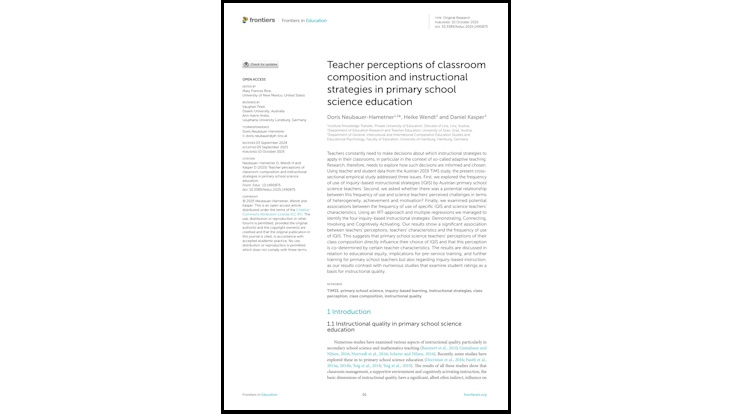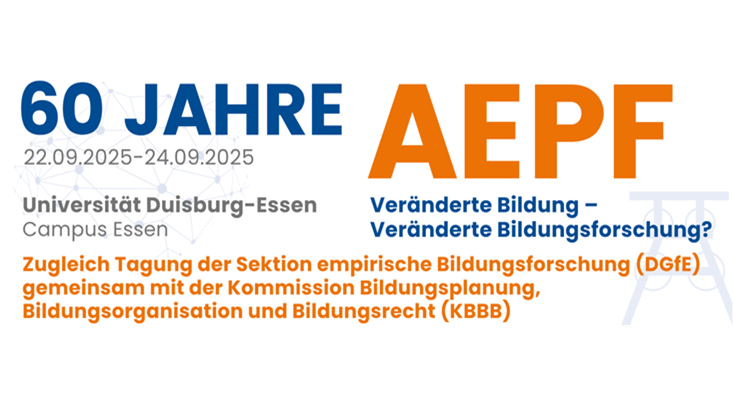Neuer Artikel: Teacher perceptions of classroom composition and instructional strategies in primary school science education
14. Oktober 2025

Foto: frontiers
Teacher perceptions of classroom composition and instructional strategies in primary school science education
Doris Neubauer-Hametner, Heike Wendt und Daniel Kasper
Abstract
Teachers constantly need to make decisions about which instructional strategies to apply in their classrooms, in particular in the context of so-called adaptive teaching. Research, therefore, needs to explore how such decisions are informed and chosen. Using teacher and student data from the Austrian 2019 TIMS study, the present cross-sectional empirical study addressed three issues. First, we explored the frequency of use of inquiry-based instructional strategies (IQIS) by Austrian primary school science teachers. Second, we asked whether there was a potential relationship between this frequency of use and science teachers’ perceived challenges in terms of heterogeneity, achievement and motivation? Finally, we examined potential associations between the frequency of use of specific IQIS and science teachers’ characteristics. Using an IRT-approach and multiple regressions we managed to identify the four inquiry-based instructional strategies: Demonstrating, Connecting, Involving and Cognitively Activating. Our results show a significant association between teachers’ perceptions, teachers’ characteristics and the frequency of use of IQIS. This suggests that primary school science teachers’ perceptions of their class composition directly influence their choice of IQIS and that this perception is co-determined by certain teacher characteristics. The results are discussed in relation to educational equity, implications for pre-service training, and further training for primary school teachers but also regarding inquiry-based instruction, as our results contrast with numerous studies that examine student ratings as a basis for instructional quality.

